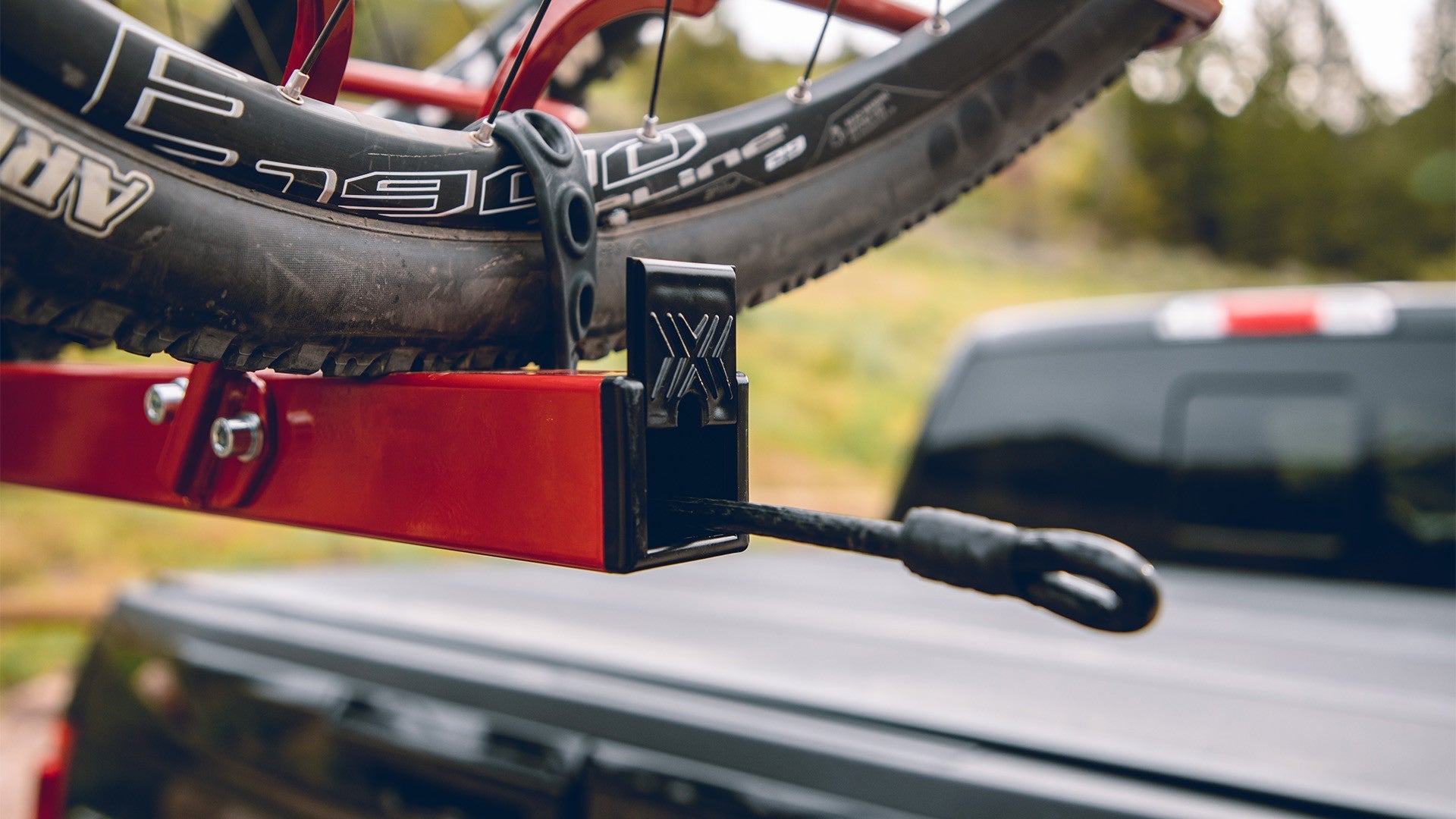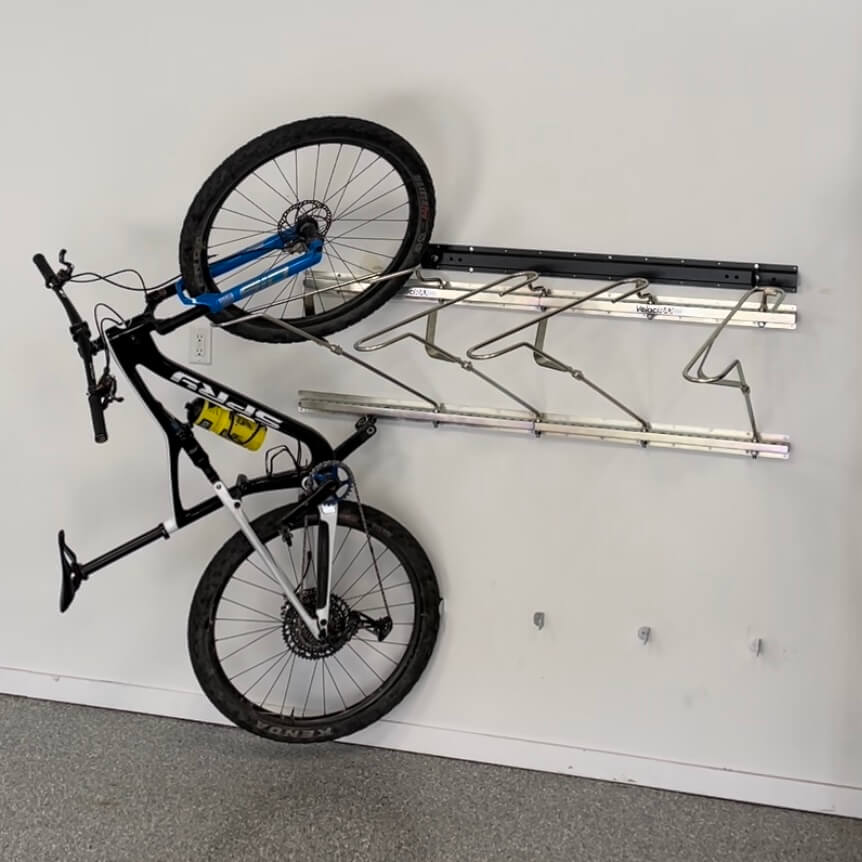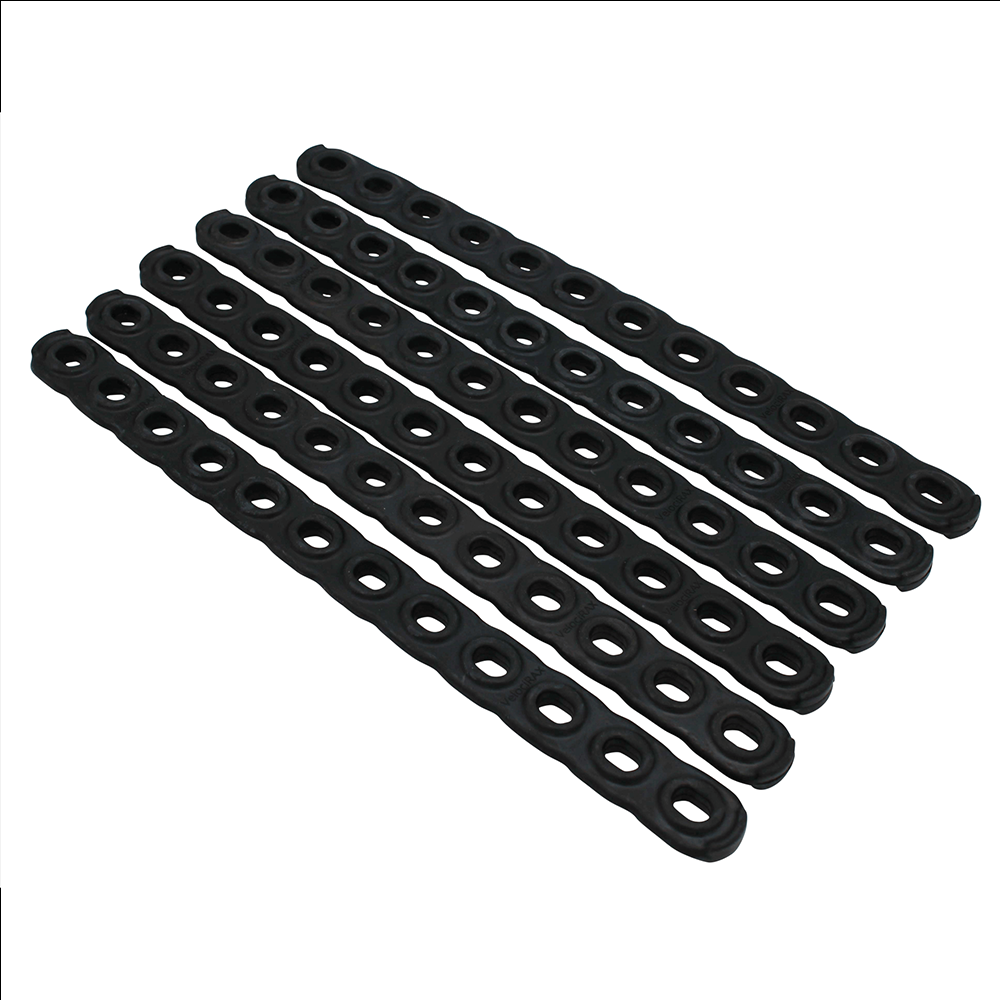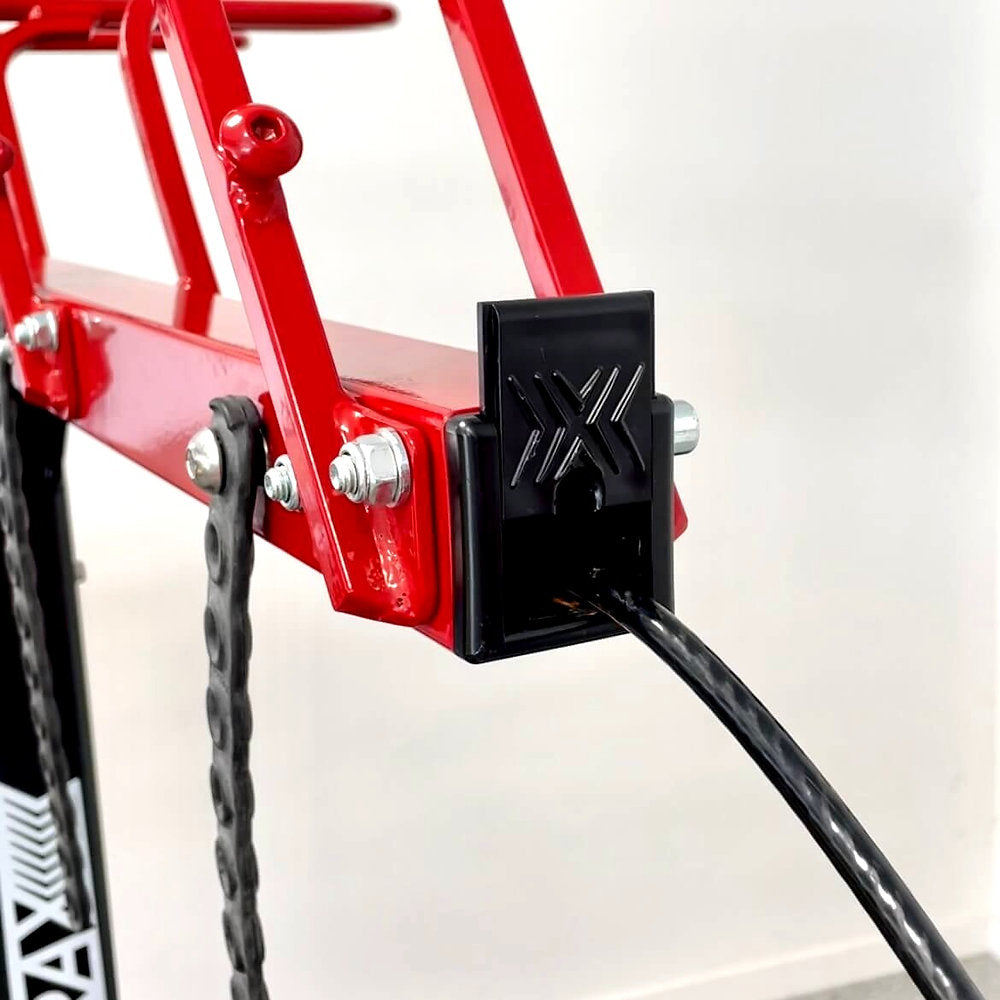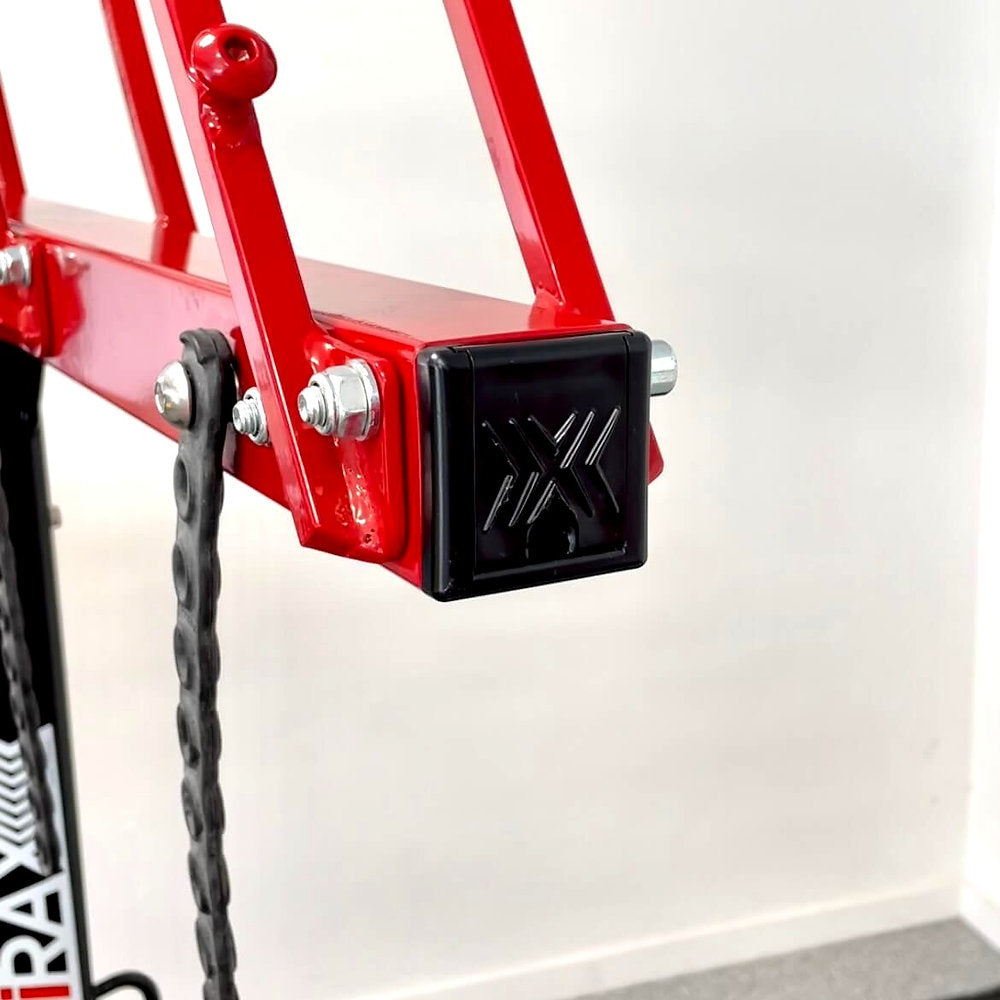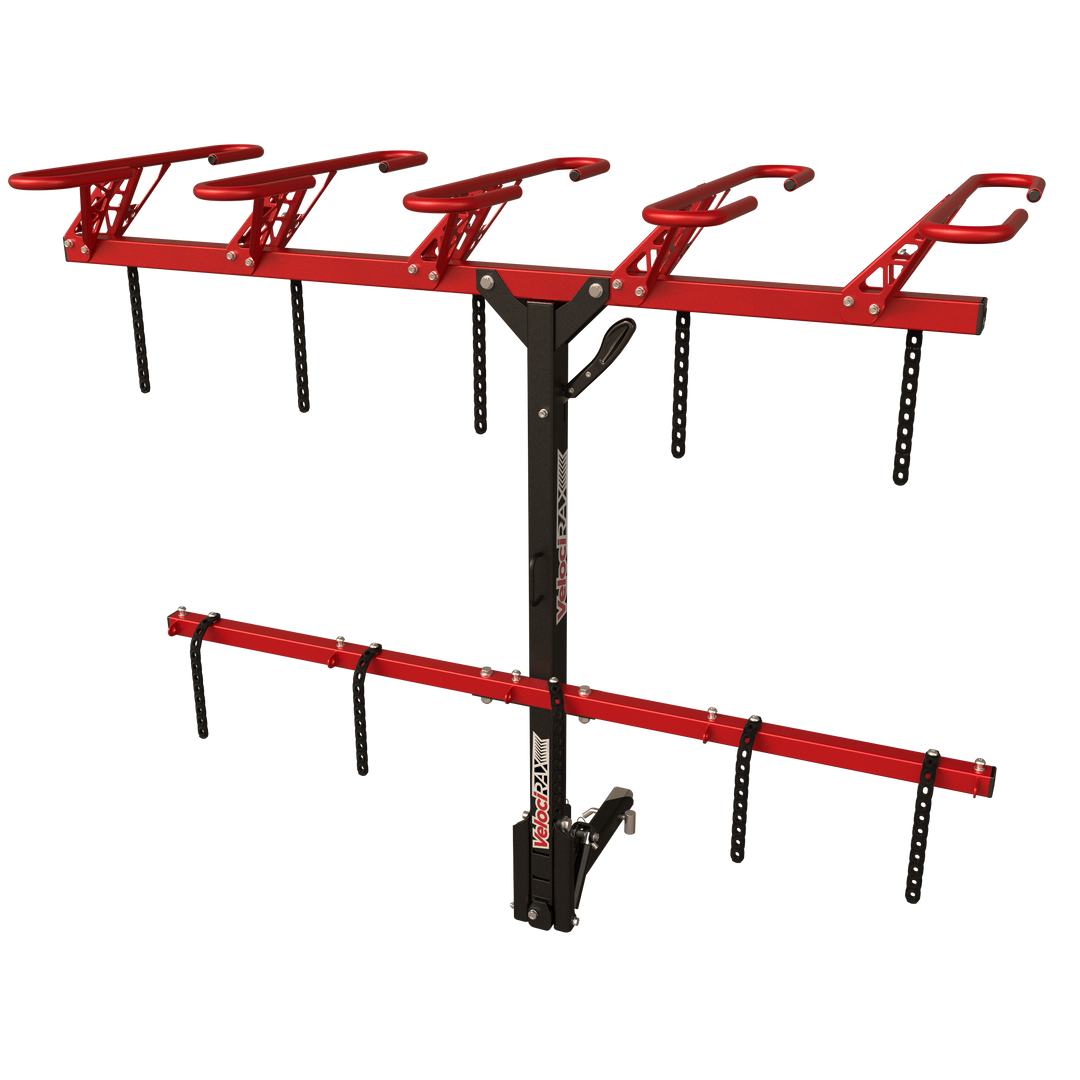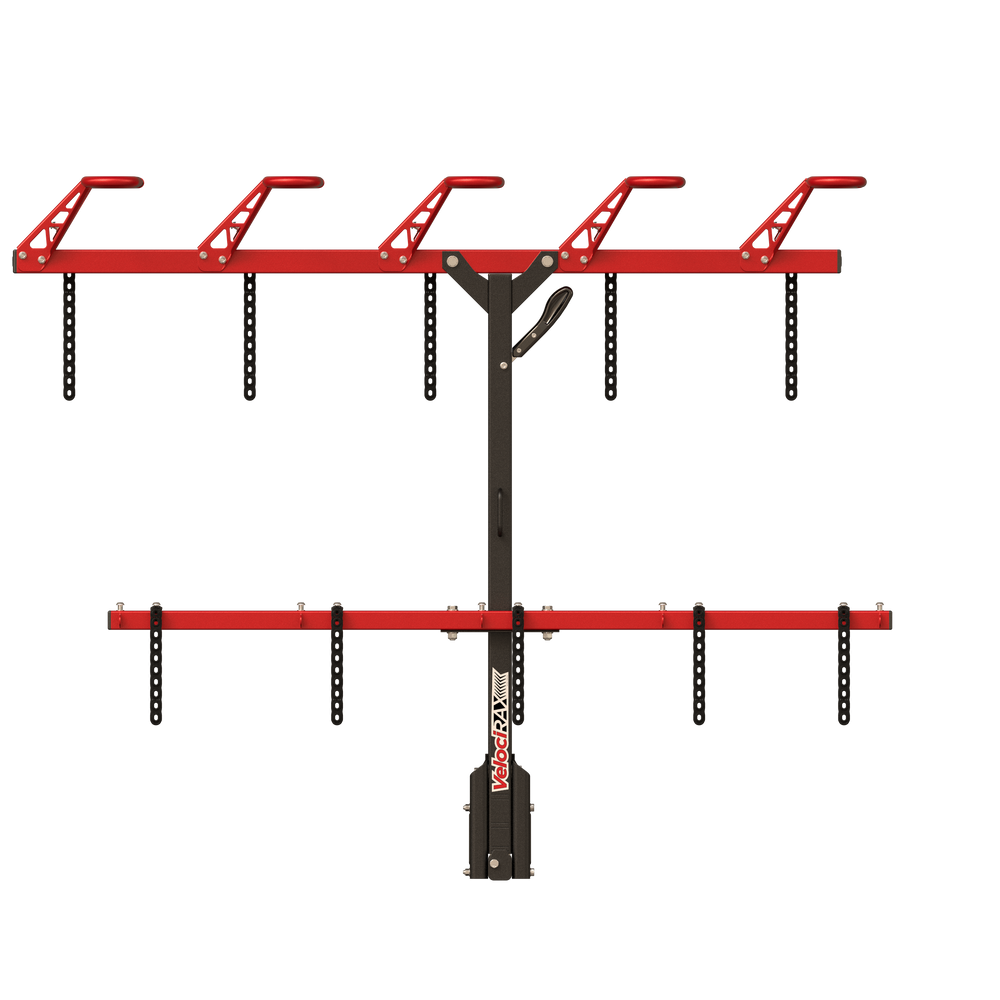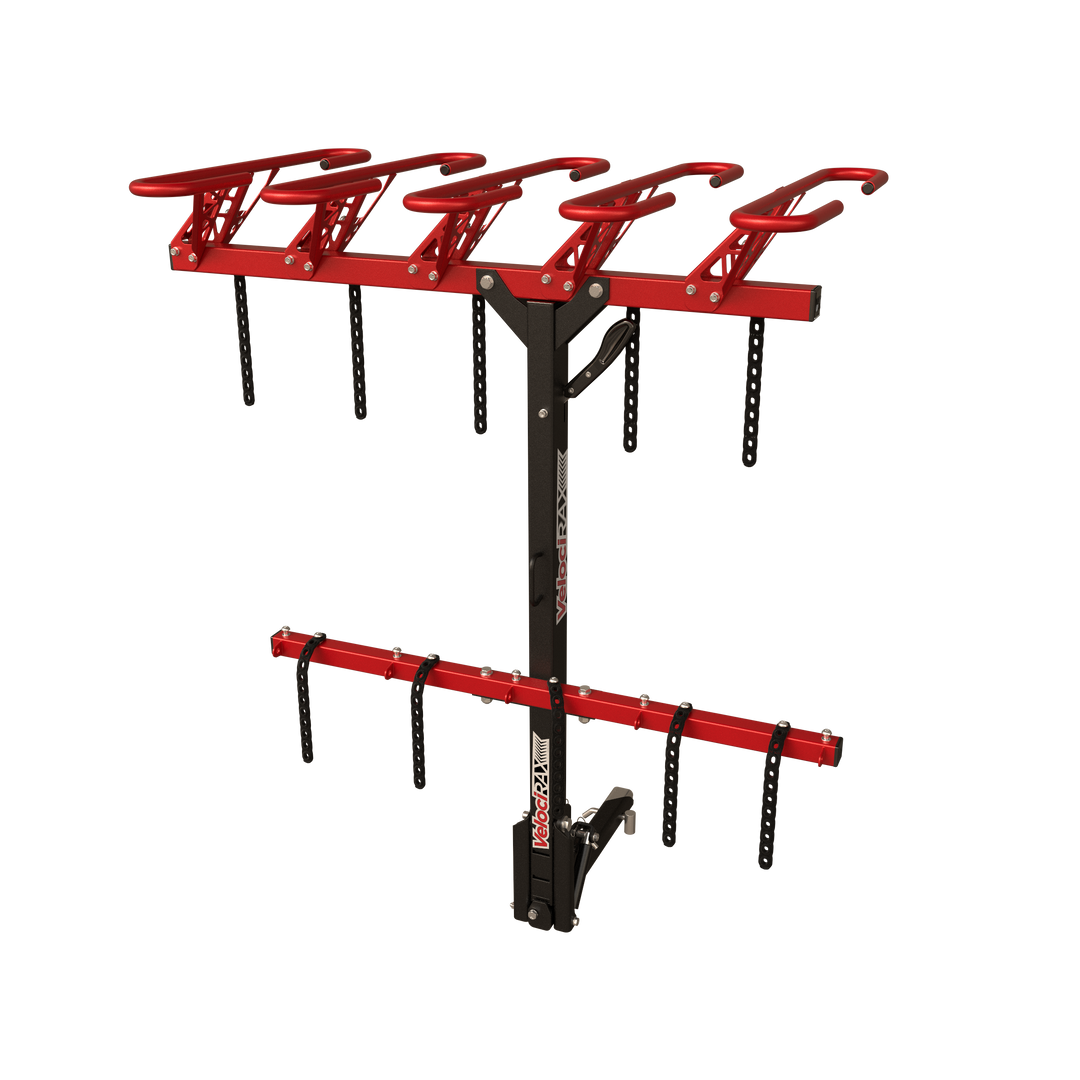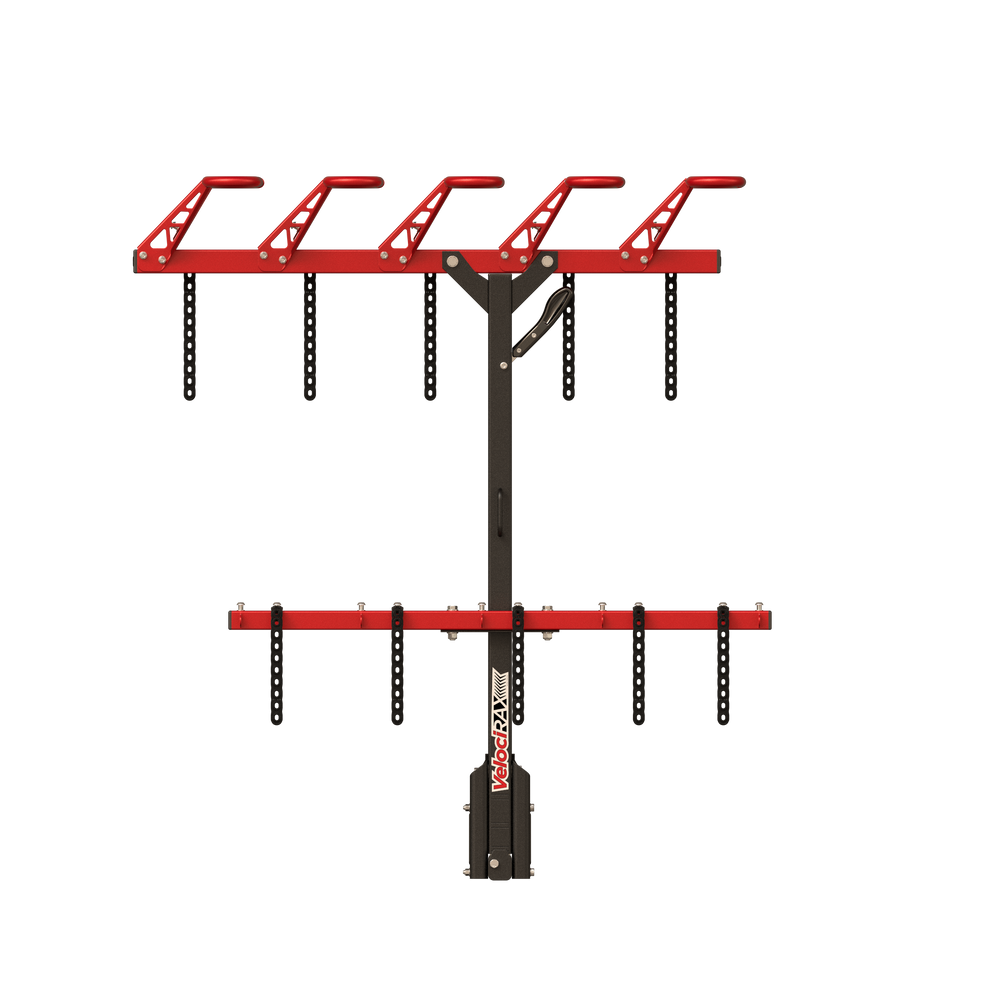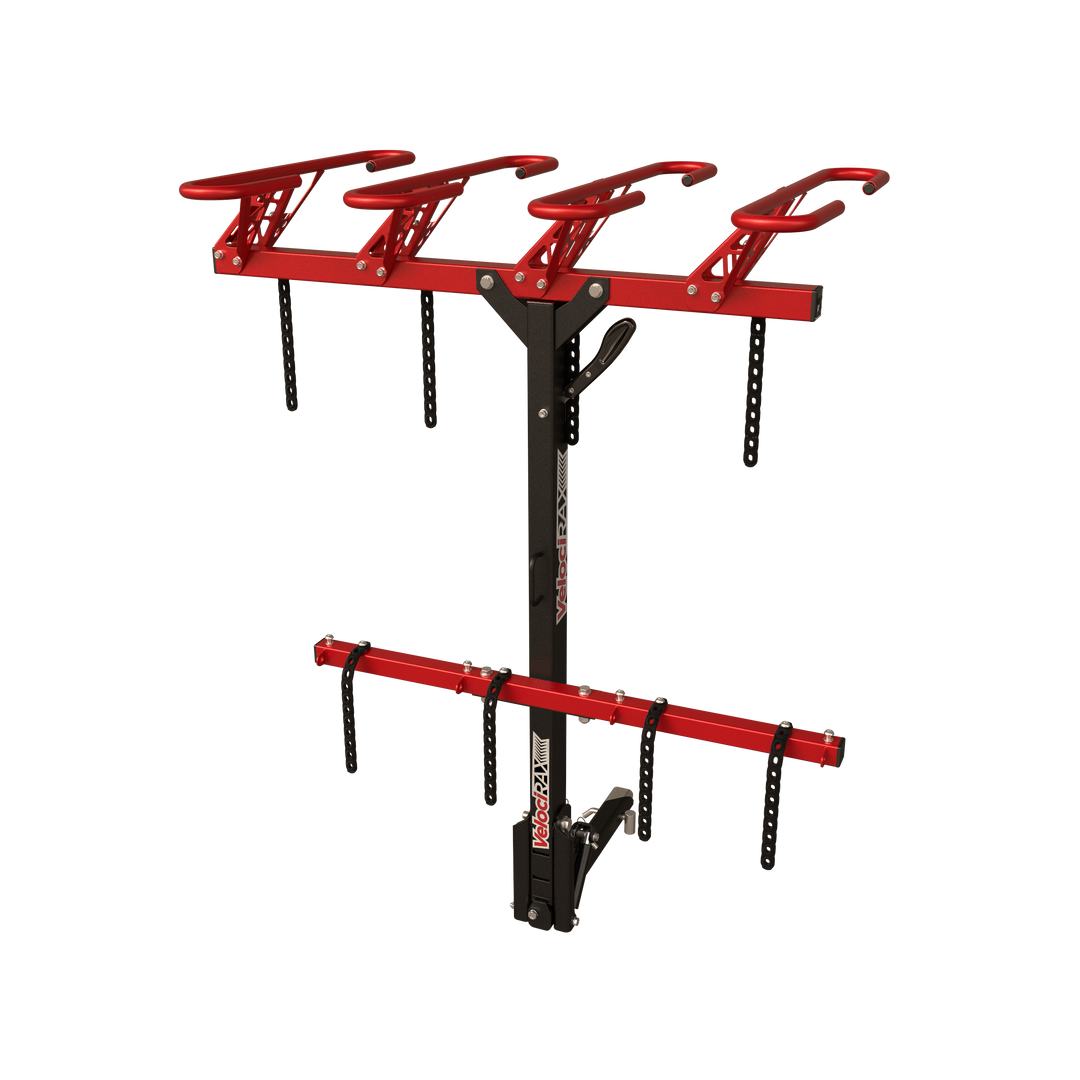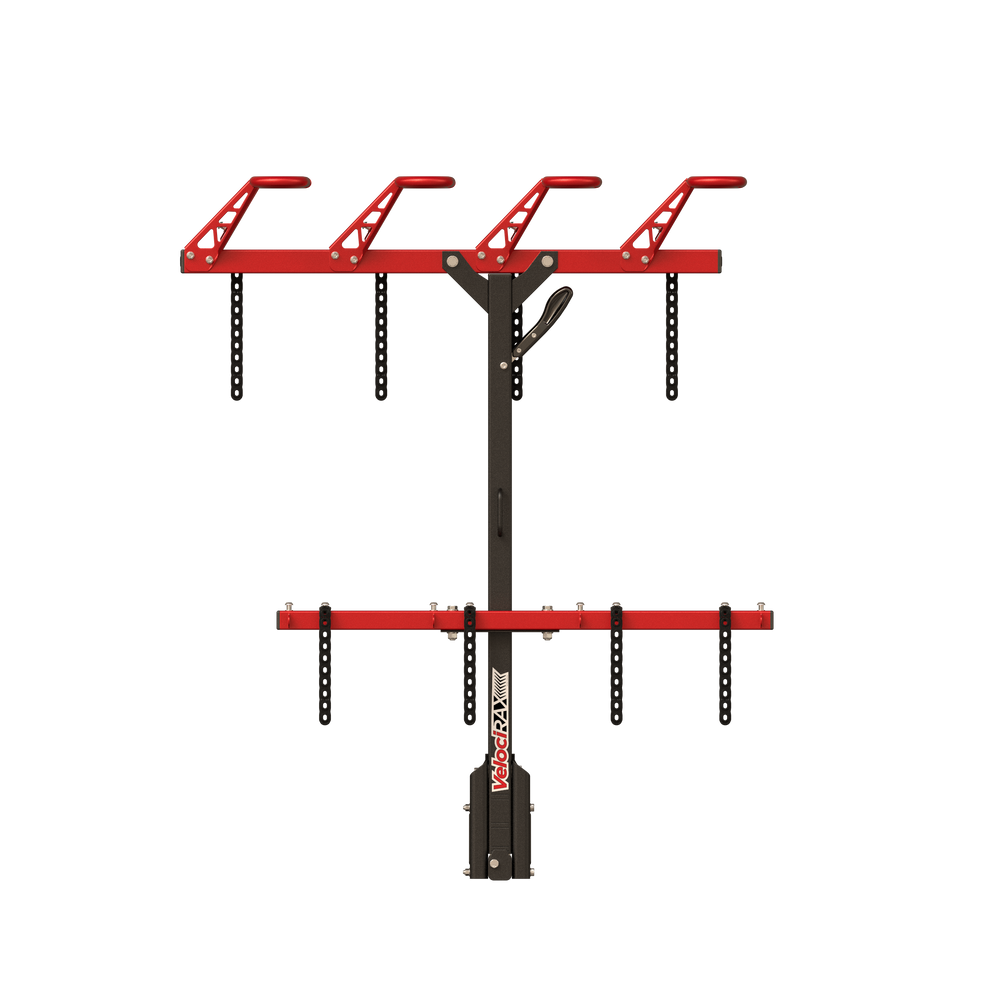It’s Time To Get Fat: Best Fat Tire Bike Rack
Snow is back, but this doesn’t mean you should retire from biking when the cold comes around. For many people, the hardest part of winter is finding the motivation to get outside. You can throw winter blues out the window if you have a fat tire bike and a bike rack to take it out.
An obvious perk of fat tires is snow access, but they are also stabilizing for sandy rides. Fat tires can be enjoyed by people all over because of their all-terrain riding opportunities.
Whether you mountain bike, snow bike, beach cruise, e-bike, or road bike, you should have a bike rack that can take you where you want to ride. VeloicRAX vertical hitch bike racks offer small and fat tire baskets to fit your assortment of bikes.
With fat tire bikes and fat tire attachments, you will be ready for any terrain. You can ride off into the sunset at Huntington Beach, float over sand pits in Moab, then plow through Park City, Utah Snow all in the same week.
Cycling and Snow Fall in Love
Fat bike tire pressure can be as low as 15 or 10 PSI, which creates a smooth ride and is more comfortable than other biking styles (Ice Bike). Low tire pressure is ideal for beginners because there is low risk of injury, and requires less skill than traditional mountain biking.

Fat tire riding is easy to get into and lets you get a good workout any season, which is also good cross-training for backcountry skiing and snowboarding. While you’re at it, try out bikepacking because fat bikes are much more comfortable to ride for long distances and can support more weight than traditional mountain bikes.
Fat Bike Q-Factor Benefits
Fatties have been a hit with cyclists to keep biking alive in the winter, but many riders may not know about other physical benefits they offer. A favorable factor among fat tire bikers is the high Q-factor. High Q-factors can prevent injury and increase riding performance. It also gives riders a powerful stance, according to Cycling News.
A wider stance takes advantage of the largest muscle in the body: the gluteus maximus. Different muscles are utilized when Q-factors change, so if you're able to relieve pressure on your knees and use your glutes to help pedal, your body will be grateful. This is especially helpful when trudging through the snow for long periods.
What is The Q-Factor?
Otso Cycles defines Q-factor as “a crankset’s width, measured in millimeters at the outside edges of the assembled crank arms". Increasing the Q-factor will result in a wider stance, but this does not mean Q-factor and stance are the same. The Q-factor should not be confused with the distance between the outer edges of the pedals because pedal adjustments entail other riding outcomes.

Stance width is the distance between pedal pressure points, which can have different implications depending on the size of the pedal, mounting placement, and the use of pedal spacers, Cycling Weekly says. A wider stance is a quick fix for riders lacking flexibility or experiencing pain on the outside of the knee. A common issue with pain in the outer part of the knee can be from riding with too narrow of a stance.
Q-factors found in fat tire bikes are ideal for gaining traction in the snow and helping the rider feel stable. If a road biker tries a fat fire bike, they will see that the Q-factor of a fat bike is much better than their road bike for snowy conditions. Overall, Q-factor can impact a cyclists hip movement, ankle mechanics, and stance.
Learn more about Q-factor and how it may affect your riding from Cycling News.
How Old Are Fat Tire Bikes?
Mountain bikes were distributed to bike shops in the 70s and 80s and surpassed road bike popularity by the mid-80s (Adventure Cycling Association). As mountain biking gained momentum, innovative snow bikers were interested in riding their bike instead of pushing it through the snow, so they were creative with the materials they had. Alaskan cyclists extended their wheel widths by stacking additional mountain bike tires to the front and back, creating a make-shift balloon bike. Welded rims and rare bike frames birthed the modern-day fat tire bikes.
What do Alaska and New Mexico Have in Common? Fatties.
The first fat tires made an appearance in Alaska and New Mexico around the same time. In Alaska, a wide wheel was necessary for commuting, but it was also a high interest for winter long-distance racing. Adventure Cycling Association says one of the first fat tire bikes were welded together for an Iditasport Extreme 360-mile bike race.
“Individual rims were pinned or welded side by side, laced in tandem to a single hub, with two tires. With twice the footprint, the wider system allowed more riding and less walking. One notable experiment, called the “six-pack,” even used three rims and tires side by side on both the front and the rear of a custom frame.”
Jump over to Southern New Mexico, fat tires were also in the works, but for biking through the sand. Testing was done in New Mexico and over in Mexican sand dunes, and eventually used for tour guiding in areas with soft sand (Bpi Imports). Through trial and error and collaboration, the first modern-day fat tire bike was released in 2001. They continue to improve, so balloon tires are not going anywhere!
VelociRAX Fat Tire Bike Rack
Bikes with fat tires became widely available in 2010 and have maintained momentum since (Adventure Cycling Association). They really took off in 2013 and 2014 and have exponentially found new owners. We followed this trend by becoming fat tire owners in 2022 and wanted to make an addition to our hitch racks to get our fatties out!
Fat tire baskets are available for any size of VelociRAX vertical rack, which replaces standard tire baskets. With this upgrade, VelociRAX hitch racks are the perfect bike rack for fat tire bikes and fat tire electric bikes up to 55 lbs. If your fat tire e-bike is heavier than 55 lbs removing batteries will reduce bike weight. Fat tire baskets can carry bikes up to 5 inches wide and turn your rack into a heavy-duty fat tire rack. Basket replacements are sold in a pack of two and come with four extra long rubber straps and all mounting hardware.
What Are Reviewers Saying About Fat Tire Baskets?
Frugal Fit Dad upgraded to fat tire baskets and likes the interchangeability. Before customizing his rack, he had to take apart his fat tire bike and stuff it in the car every time he wanted to take it out. It only took him a few minutes to detach standard tire baskets and replace them with fat tire baskets. He also likes the included garage mount, which can double as heavy-duty fat tire bike wall storage.
Like him, you may need to do a one-time experiment to see which order works best for your mountain bike and fat tire bikes, but this is a one and done trial. He was able to fit his fattie on the right end with a smaller mountain bike to the left, but this may be different than the order that will work for you. Plan on taking some time to find the best spacing for your unique bike arrangement the first time new tire baskets are put on. After a comfortable fit is found, you will be able to change them out in a matter of minutes.
Bring ‘Em All
We have a pair of Fezzari King Peaks and like to take them out together. When placing these bikes on a VelociRAX, we will stagger them on 10-inch spaced racks but place them next to each other when putting them on a rack with 12 or 15-inch spacing. Racks with more than 10-inch spacing between tire baskets can be fully loaded with fatties so you can take your whole fat tire squad out.
Our anti-rattle system will decrease rack movement while driving on or off the road, so don’t be afraid to take your rack off the beaten path for a good fat tire ride. The anti-rattle system will be helpful for fat tire electric bikes to keep heavy bikes locked in place. We also provide rubber bands for brake levers, which we strongly recommend anytime e-bikes are loaded.
If you’re looking for a heavy-duty fat tire bike rack, a VelociRAX hitch rack with fat tire baskets is the best for fat tire riding. With the ability to modify your VelociRAX for all seasons, nothing can stop you from getting out to ride!

